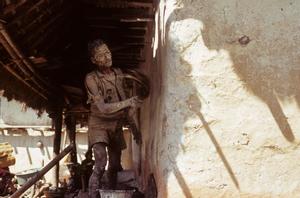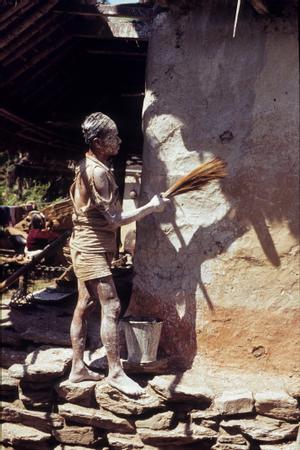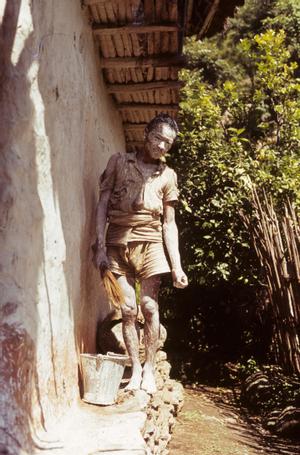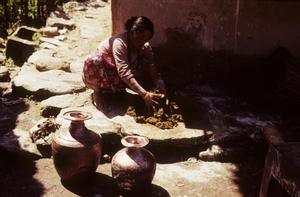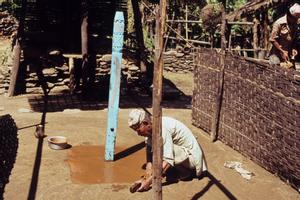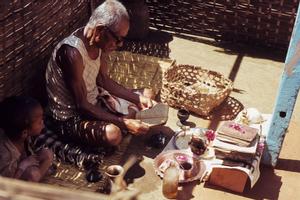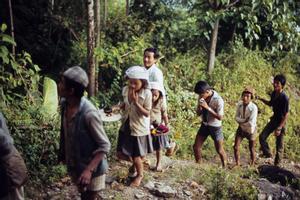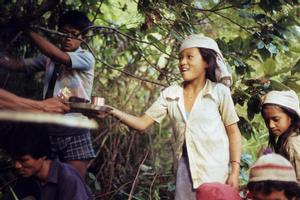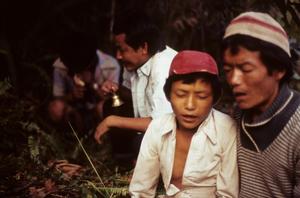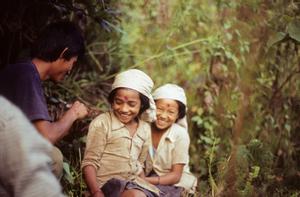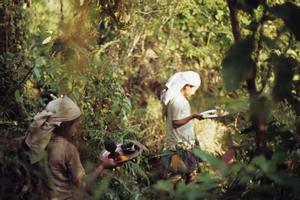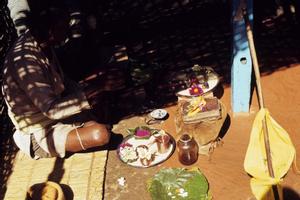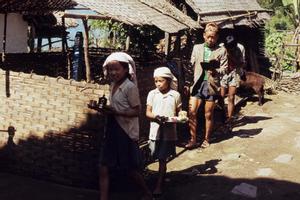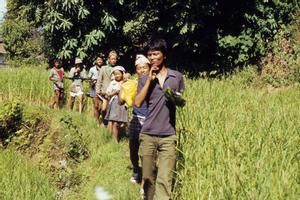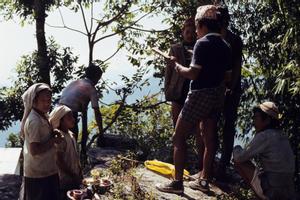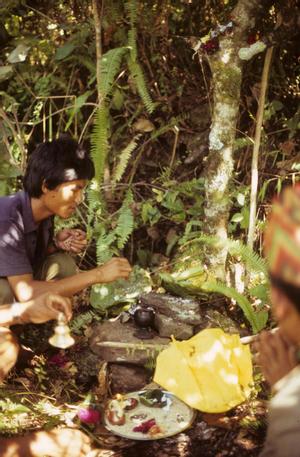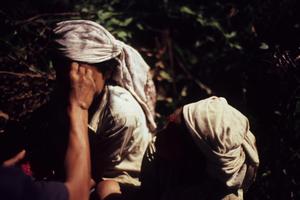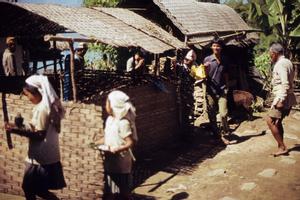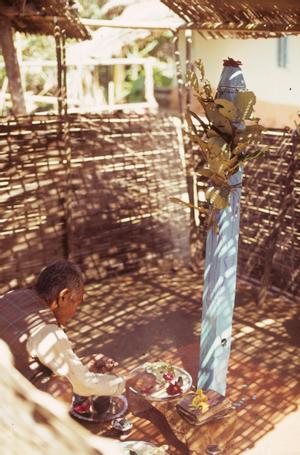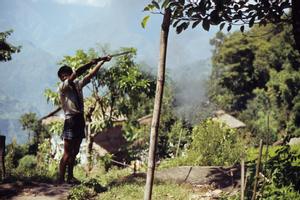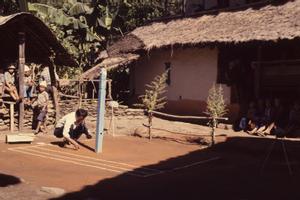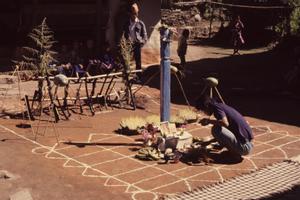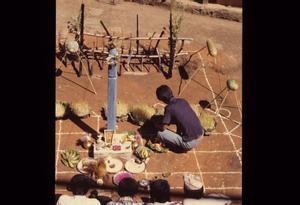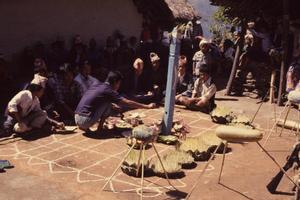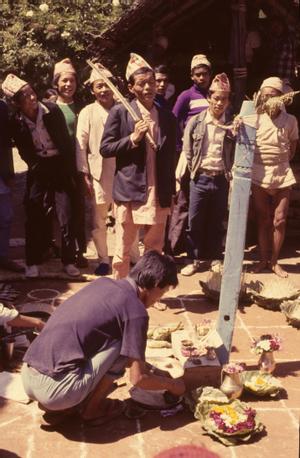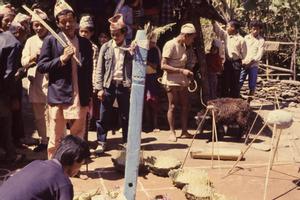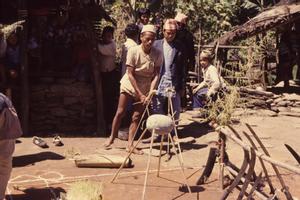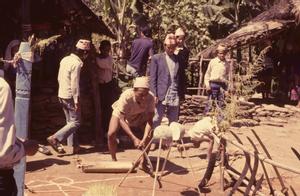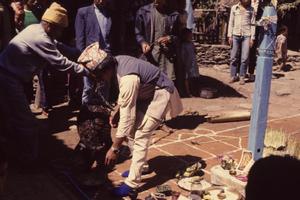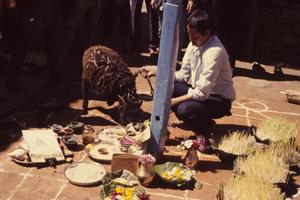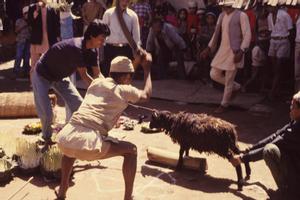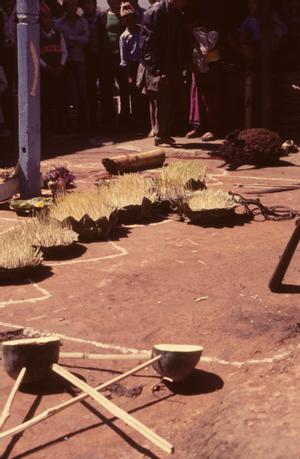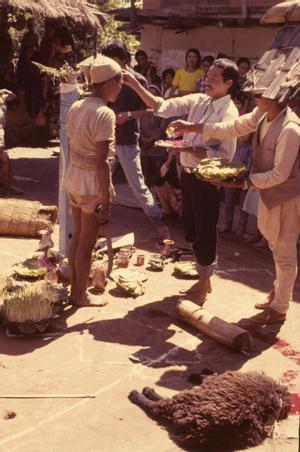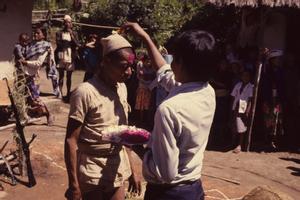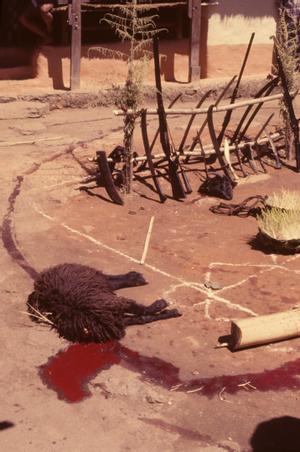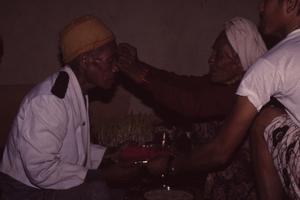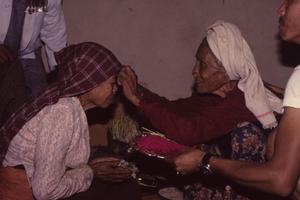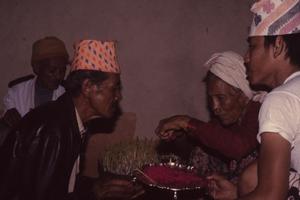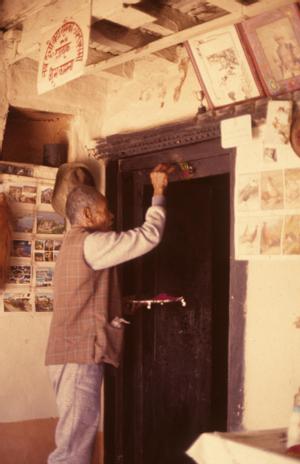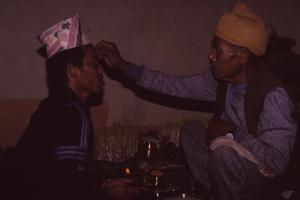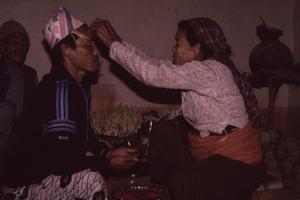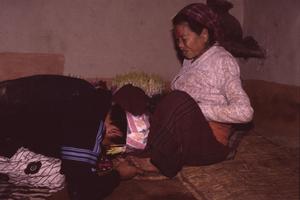Dasain
Dasain in Tamku
This is a documentation of the annual Durga Puja or Dasain Festival celebrated in the Mewahang village of Tamku (Sankhuwa Sabha District, Eastern Nepal) in October 1984. The rituals are performed at the house of the local chief, who was the jimmāwāl (tax-collector) in former times, Major Man Bahadur Mewahang Rai.
The great festival in honour of Durga, which celebrates the goddess' victory over the demon Mahiṣāsura, plays an important role in the annual ritual cycle of Hindus throughout South Asia. In the past, it was celebrated at the courts of the kings (Maharajas) with great pomp, but since the end of the colonial period and the disempowerment of the Maharajas, the festival is usually celebrated only as a religious family celebration. While in India (where it is known as "Daśaharā") the political meaning has almost completely disappeared, in Nepal it is still alive today due to the monarchy of the Shah, even if the country has been a republic since 2008 and the importance has been increasingly questioned in recent years.
Dasain (as the festival is called in Nepal) is still the largest religious festival of the year. For almost two weeks, all offices are closed, people return to their villages and celebrate with their families. The highlight is an animal sacrifice (buffalo, goats, sheep), which marks Durga's victory over the Buffalo demons. The sacrificial master of this ritual is traditionally the king, who then distributes his blessing in the form of a ṭīkā (sign of blessing) on his forehead, first to his family, then to his subjects.
The festival documented here took place at a time when the so-called Panchayat system (1962-1990) was in force in Nepal and political parties had been banned by King Mahendra's constitution. This ritual was presided over by the village head (jimmāwāl) from the Mewahang Rai ethnic group, who traditionally also acted as a tax collector and representative of royal power. On the ninth day, the Navami, the villagers came to the house of the jimmāwāl with presents and attended the blood sacrifice, which was solemnly celebrated.
Since the 1990s, this kind of Dasain celebration has been heavily attacked and boycotted, especially by the ethnic minorities, so that today it hardly take place in this form. As a family celebration, however, the festival is still very lively.
